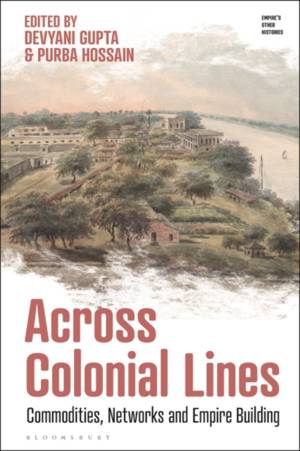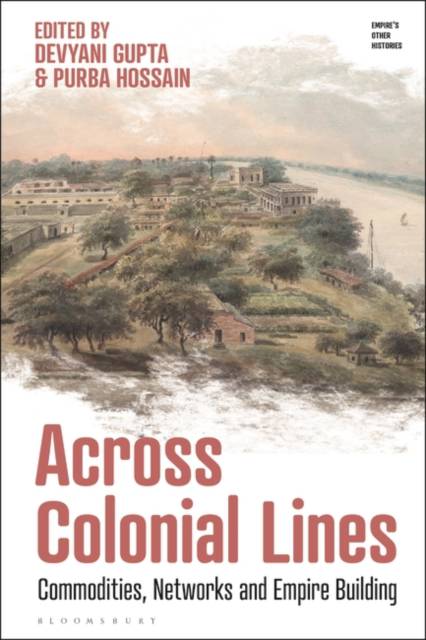
Bedankt voor het vertrouwen het afgelopen jaar! Om jou te bedanken bieden we GRATIS verzending (in België) aan op alles gedurende de hele maand januari.
- Afhalen na 1 uur in een winkel met voorraad
- In januari gratis thuislevering in België
- Ruim aanbod met 7 miljoen producten
Bedankt voor het vertrouwen het afgelopen jaar! Om jou te bedanken bieden we GRATIS verzending (in België) aan op alles gedurende de hele maand januari.
- Afhalen na 1 uur in een winkel met voorraad
- In januari gratis thuislevering in België
- Ruim aanbod met 7 miljoen producten
Zoeken
Across Colonial Lines
Commodities, Networks and Empire Building
€ 195,45
+ 390 punten
Omschrijving
This collection takes a multi-perspective approach in the study of empire and commodities beyond temporal and spatial boundaries. From early modern Venetian trade to tea in the Eurasian world, the role of gold in Portuguese imperial ambitions and British sailors as traders, Across Colonial Lines uses commodity networks as a lens to study empire and the links between them.
Offering a comparative understanding of the movement of commodities across the British, French, Dutch, Portuguese and Venetian empires, it demonstrates the impact of commodity production, consumption and movement on colonial and post-colonial societies. It further explores the nexus between the local and the global to consider the role played by individual producers, petty traders, sailors and the consumer in creating regional circulations and a wider global political economy. Re-examining 'commodities' and highlighting the interwoven character of multiple commodity networks to explain both the trade and fiscal aspects of imperialism alongside its ideology, governance and knowledge production, each chapter takes an individual commodity to illuminate the history of commodity transmission within trans-imperial contexts. They show how these networks shaped traditions of knowledge production, social organisation, political control and even impetus to globalisation from as early as the 13th century.
Offering a comparative understanding of the movement of commodities across the British, French, Dutch, Portuguese and Venetian empires, it demonstrates the impact of commodity production, consumption and movement on colonial and post-colonial societies. It further explores the nexus between the local and the global to consider the role played by individual producers, petty traders, sailors and the consumer in creating regional circulations and a wider global political economy. Re-examining 'commodities' and highlighting the interwoven character of multiple commodity networks to explain both the trade and fiscal aspects of imperialism alongside its ideology, governance and knowledge production, each chapter takes an individual commodity to illuminate the history of commodity transmission within trans-imperial contexts. They show how these networks shaped traditions of knowledge production, social organisation, political control and even impetus to globalisation from as early as the 13th century.
Specificaties
Betrokkenen
- Uitgeverij:
Inhoud
- Aantal bladzijden:
- 272
- Taal:
- Engels
- Reeks:
Eigenschappen
- Productcode (EAN):
- 9781350327023
- Verschijningsdatum:
- 9/02/2023
- Uitvoering:
- Hardcover
- Formaat:
- Genaaid
- Afmetingen:
- 156 mm x 234 mm
- Gewicht:
- 557 g

Alleen bij Standaard Boekhandel
+ 390 punten op je klantenkaart van Standaard Boekhandel
Beoordelingen
We publiceren alleen reviews die voldoen aan de voorwaarden voor reviews. Bekijk onze voorwaarden voor reviews.








